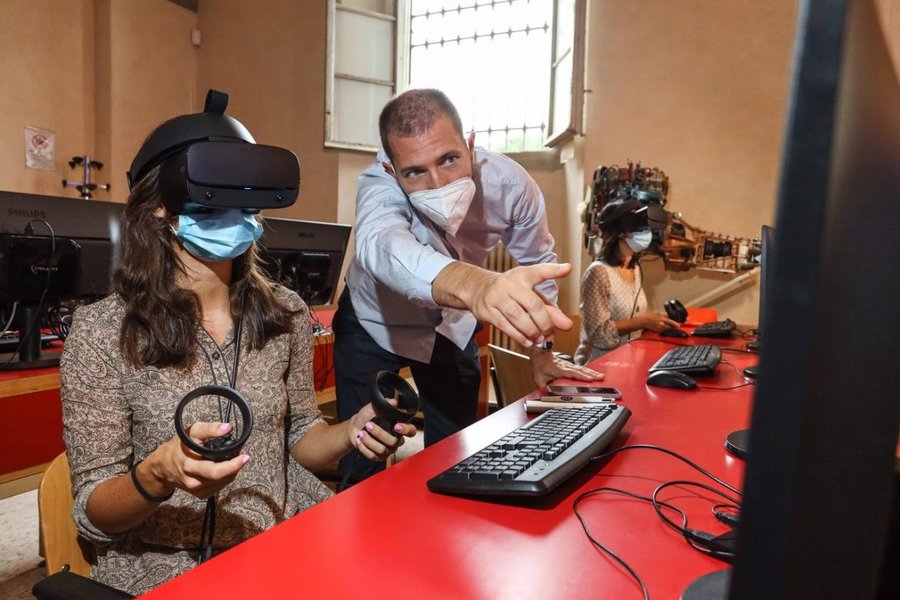University of Florence creates Italy's first immersive education lab
Augmented reality has left the big screen and video games behind and is making its way into classrooms at the University of Florence. The first immersive didactics lab for the production of 360-degree videos for teaching purposes, a novelty in the national university landscape, has been set up on the Cascine campus, where the courses of the Department of Agricultural, Food, Environmental and Forestry Sciences and Technologies (DAGRI) will be held from the end of September. The space contains 20 workstations equipped with special headsets, 10 of which are already operational. The inauguration was attended by Alessandra Petrucci, Rector of the University of Florence, Ersilia Menesini, Vice-Rector for Education, Simone Orlandini, Director of DAGRI, Erminio Monteleone, Professor of Food Science and Technology and coordinator of the TraINing project, Maria Ranieri, Professor of Education and Educational Technology at the FORLILPSI Department and coordinator of the European SEPA360 project.
The 360° video is realised starting from a panoramic image to which content with different levels of interactivity can be added. By using special video cameras, it is possible to capture and combine images to get a complete overview of an environment. The end user can direct their gaze at will, as if they were physically present. The immersive experience is enhanced by headsets that detect head movements and adjust the viewing angle accordingly.
“This laboratory represents a resource of outstanding value for the University of Florence,” explains Alessandra Petrucci, Rector of the University of Florence. “The pioneering experience of Agraria, which had the merit of investing in this challenge, is destined to germinate in other schools of our university, showcasing Florence as an advanced presence in the exploration of the most innovative forms of didactics. Pushing the boundaries in this way offers universities the opportunity to explore new solutions in terms of sustainability and innovation in order to meet the increasingly complex and diverse needs of students.”
“We look forward to this experiment at Agraria with great attention and interest, and we will make the most of it to improve these experiences in a scenario of quality education for the future. The laboratory is a pilot opportunity to understand in the direction we need to go in the renewal of teaching methods,” says Vice-Rector for Education, Ersilia Menesini. “For this reason, we have also set up a working group to reflect on the innovative ways and experiences at the university in order to systematise them and develop a project for the future.”
“We are proud of this first multimedia experiment created within Agraria, which constitutes an innovative learning tool for the University of Florence and at national level,” adds Simone Orlandini. “We will be delighted to share this experience with other lecturers at the University in order to enhance the experiments in laboratory activities in other courses.”
The decision to invest in an immersive teaching laboratory was taken when the University of Florence joined the European project SEPA360 (Supporting Educators Pedagogical Activities with 360 video) together with four other European universities. The initiative involved lecturers from the Faculties of Agriculture, Engineering, Humanities and Education.
Find the original article (in Italian) here.
Stay up to date!
Subscribe to our EUniWell newsletter for regular highlights and save the dates to upcoming EUniWell events delivered straight to your inbox:

